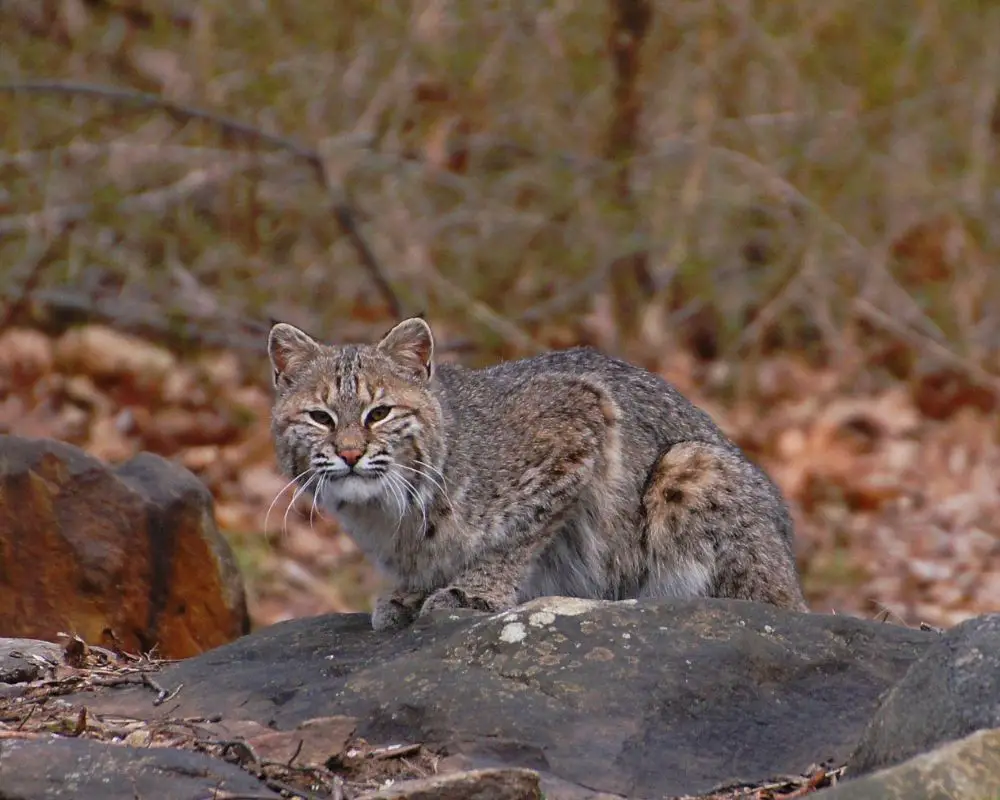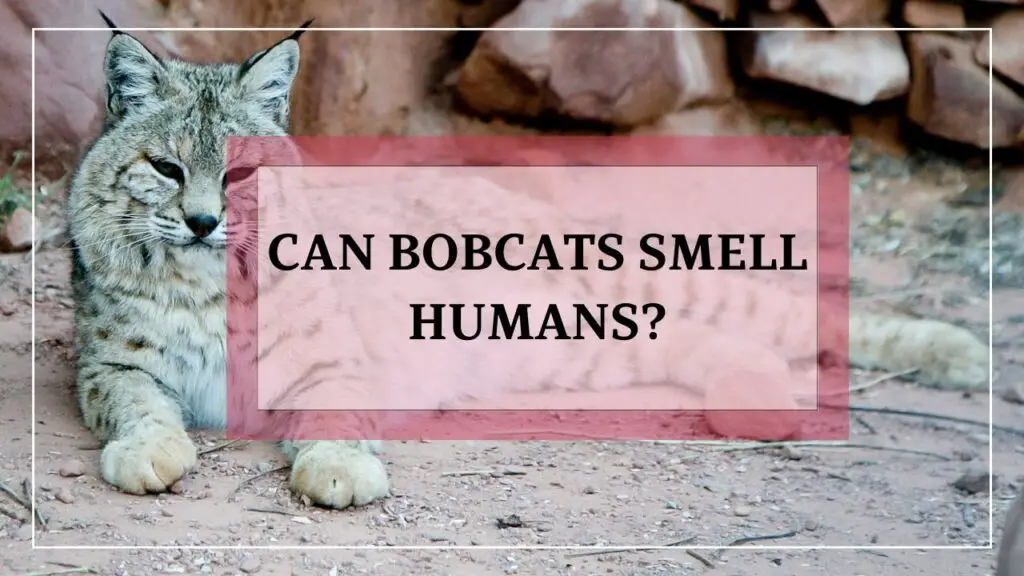Have you ever wondered if bobcats can smell humans? If you’re interested in these fascinating animals, you’ve likely wondered how they perceive the world around them – including the scents of the creatures they share their habitats with.
While bobcats are elusive and often avoid humans, it’s still important to understand how they perceive our scent and how to avoid conflicts if we cross paths. In this blog post, we’ll take a deep dive into the world of bobcats and their sense of smell to answer the burning question: can bobcats really smell humans?
There’s a lot to explore when it comes to this topic, but rest assured – we’ve done our research to bring you the most up-to-date information and insights. Whether you’re an animal enthusiast, a hiker, or simply someone who wants to understand these majestic creatures better, this post is for you. So let’s get started and discover the truth about whether bobcats can smell humans.
Bobcats have a keen sense of smell and can detect the scent of humans. However, their ability to detect human scents can be influenced by a variety of factors, such as wind direction and speed, human activity level, distance from humans, time of day, and the age and health of the bobcat. By understanding these factors and being mindful of our actions, we can learn to coexist with bobcats safely and avoid conflicts.
Bobcats’ Sense of Smell

Bobcats, like many animals, rely heavily on their sense of smell to survive. Their keen sense of smell allows them to track prey, identify potential predators, and locate mates.
What Makes Bobcats’ Sense of Smell So Unique?
- The Vomeronasal Organ
- Large Nasal Cavity
- Advanced Brain
1. The Vomeronasal Organ
Bobcats, like many other animals, possess a specialized organ in their nasal cavity called the vomeronasal organ (VNO). This organ is responsible for detecting pheromones, which are chemical signals emitted by other animals. By detecting pheromones, bobcats can glean important information about the gender, health, and reproductive status of other animals in their environment.
2. Large Nasal Cavity
Bobcats also have a large nasal cavity that allows them to process more air and, consequently, more scents. This is essential for detecting prey from a distance and for identifying other animals in their territory.
3. Advanced Brain
Finally, bobcats’ brains are highly adapted to processing and analyzing scent information. They have a large olfactory bulb, which is the part of the brain responsible for processing scent, as well as specialized neural pathways that allow them to quickly identify and respond to scent cues.
With all of these factors combined, it’s no wonder that bobcats have such an incredible sense of smell. But can they really smell humans? Let’s find out in the next section.
Can Bobcats Smell Humans?
One common question that people have about bobcats is whether or not they can smell humans. The answer is yes, bobcats can definitely smell humans.
Bobcats are curious animals that will investigate new scents in their environment, including the scent of humans. While they are not typically aggressive towards humans, they may approach people out of curiosity or if they feel threatened.
Here are a few things to keep in mind when it comes to bobcats and their sense of smell:
- Bobcats have a highly developed sense of smell that allows them to detect even faint scents in their environment.
- Humans emit a variety of scents, including body odor, perfumes/colognes, and other scented products, all of which can be detected by a bobcat’s sensitive nose.
- Bobcats may be attracted to the smell of food, garbage, or other items that humans leave behind, which can bring them into closer proximity to human settlements.
- While bobcats are not typically aggressive towards humans, it’s still important to exercise caution if you encounter one in the wild. Give the bobcat plenty of space and avoid approaching it, especially if it appears agitated or defensive.
Overall, while bobcats can certainly smell humans, they are generally not a threat to human safety. However, it’s still important to be aware of their presence in the environment and to exercise caution when encountering them in the wild. In the next section, we’ll explore some tips for coexisting with bobcats.
Factors That Affect Bobcats’ Ability to Smell Humans
While bobcats have a keen sense of smell, their ability to detect human scents can be influenced by a variety of factors. In this section, we’ll take a closer look at some of the key factors that can affect bobcats’ ability to smell humans:
- Wind Direction And Speed
- Human Activity Level
- Distance From Humans
- Time Of Day
- Bobcat Age And Health
1. Wind Direction And Speed
The direction and speed of the wind can have a significant impact on a bobcat’s ability to detect human scents. If the wind is blowing toward the bobcat, it is more likely to pick up human scents and investigate. On the other hand, if the wind is blowing away from the bobcat, it may not be able to detect human scents as easily.
2. Human Activity Level
The level of human activity in an area can also affect a bobcat’s ability to smell humans. If an area is heavily populated and there is a lot of human activity, it can be more difficult for a bobcat to detect and distinguish individual human scents. On the other hand, if an area is more isolated and there is less human activity, a bobcat may be more likely to detect and investigate human scents.
3. Distance From Humans
The distance between a bobcat and a human can also affect its ability to detect human scents. If a bobcat is in close proximity to a human, it is more likely to detect and investigate its scent. However, if a bobcat is further away, it may not be able to detect human scents as easily.
4. Time Of Day
The time of day can also play a role in a bobcat’s ability to detect human scents. Bobcats are generally more active at dawn and dusk, so they may be more likely to detect and investigate human scents during these times.
5. Bobcat Age And Health
The age and health of a bobcat can also affect its ability to detect human scents. Older or injured bobcats may have a reduced sense of smell, which can make it more difficult for them to detect human scents.
By understanding these factors that can affect a bobcat’s ability to detect human scents, we can learn to be more mindful of our actions and how they might impact these fascinating creatures.
FAQs
What Smells Do Bobcats Hate?
there is no scientific evidence to suggest that bobcats hate any particular smell.
Some people have suggested that bobcats may be repelled by the smell of ammonia, vinegar, or mothballs, but there is no concrete evidence to support these claims. Additionally, it’s important to note that the use of strong or harsh scents to deter bobcats can be harmful to them and the environment.
What Smell Attracts Bobcats?
Bobcats are attracted to a variety of scents that are found in their natural environment. They are carnivores and primarily hunt small mammals, birds, and reptiles, so they are attracted to the scents of their prey.
In particular, bobcats are attracted to the scent of urine and feces of their prey. They may also be attracted to the scent of carrion or other dead animals, as well as the scent of female bobcats during the breeding season.

